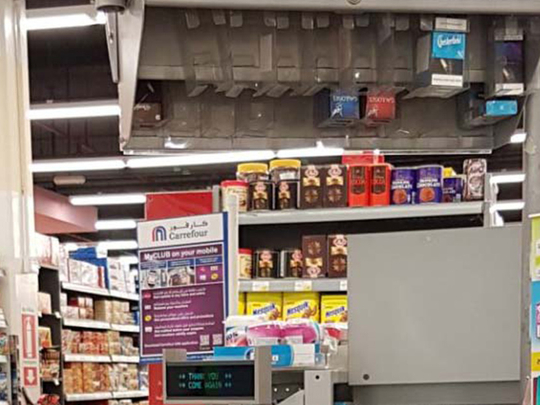
Dubai: Some prices went up. Some prices didn’t. Mainly due to confusion among retailers, the UAE’s new Excise Tax was less than universally applied on Sunday.
Many shops still appeared to be selling products at their old price on Sunday afternoon. Energy drinks and tobacco products should have doubled in price under the tax, whilst soft drinks have increased in price by 50 per cent. The excise tax went into effect at midnight on October 1.
Whilst experts are divided on the cause of this, they all agree that within a month, every shop, restaurant and hotel will have reflected the tax in their new prices.
Adrienne D’Rose, a senior manager in the Indirect Tax Department at Deloitte, told Gulf News that some retailers had not changed their pricing because they had legal levels of stockpiles which they would need to sell first before updating their prices.
According to the UAE’s law on the excise tax, retailers were allowed to stockpile ahead of October 1 a maximum of two months’ stock of inventory according to average monthly sales.
In simple terms, what this means is that retailers may only hold the stock they would normally need for two months. Any more than this amount and the retailer must pay excise tax on the excess stock.
“The government’s stockpiling provisions are designed in part to stop people from storing stocks of excisable goods before the implementation to avoid or delay paying taxes,” D’Rose said.
What this means is that for the next few days, some retailers may be getting rid of their old stock, which they bought before the tax.
According to D’Rose, given the way that the authorities have calculated the maximum amount of stock a shop can hold, “retailers could realistically only sell stockpiled goods for a couple of weeks”.
After this, the retailer will start selling taxed goods and the prices will increase.
According to the senior tax expert, there is also a “practical time lag” between the production or importation of excisable goods, and “the goods hitting the shelves”.
D’Rose also noted that smaller retailers may not be aware of the changes — so from a practical point of view there could be a delay in passing the cost on.
For some, the issue was more of an operational one. Some businesses have reported not receiving a finalised list of prices from the Federal Tax Authority, leading to confusion and an inability to update prices, says James George, a Senior Research Analyst at Euromonitor International.
The reason that some retailers had not updated their prices was “just operational”, George said on Sunday.
“If they didn’t have clarity on the list of official prices as of the end of last week,” then they would struggle to update their pricing in stores, he added.
George said that he had spoken to major retailers who were not clear on what prices should be, and were waiting for guidance.
Ultimately, however, both D’Rose and George agreed that this confusion would be short-lived.
“Retailers know there’s effectively a one month grace period, after which everything will be equal,” George concluded.












